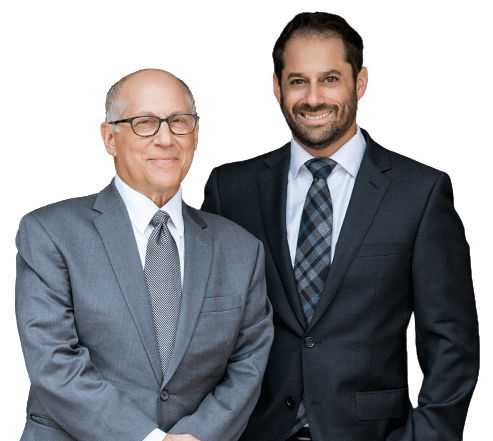
Dealing with a work-related injury can be incredibly stressful, especially if you are planning to file a workers’ compensation claim. If you are not familiar with workers’ compensation, navigating the process can be confusingand overwhelming. To maximize your potential benefits, be sure to avoid these common pitfalls and myths regarding workers’ compensation.
Myth 1: You risk being fired if you file for workers’ compensation
It is illegal for any employer to fire an employee because they filed, pursued, or retained an attorney on a workers’ compensation claim. This action is considered by the courts as retaliation, and employers can be penalized for doing so. It is also illegal for employers to discriminate against employees based on physical or mental disabilities, especially when they were the result of a work-related injury. Employees commonly worry about the possibility of losing their jobs if they pursue a workers’ compensation claim. Luckily, there are laws to protect them.
Myth 2: You need to physically present at your jobsite or workplace when you are injured
There are situations where employees are injured while not present at their physical place of employment but are still able to receive workers’ compensation benefits. For example, auto accidents while in the course and scope of your employment are one of the most common reasons for claims. They are also one of the top causes of work-related fatalities.
Note that commuting to and from work generally is not considered an activity within the scope of employment. However, if driving is part of the job, then injuries suffered in an auto accident while working should be eligible for workers’ compensation benefits. If you would like to know more about this subject, here is another post from our blog.
Myth 3: Legal fees will take most of your benefits
Unlike many other types of legal assistance, legal help for workers’ compensation does not require upfront out-of-pocket expenses. Workers’ compensation attorneys work on a contingency fee basis, meaning If your claim is successful, a portion of some of your benefits are retained for legal fees. These fees are typically limited by state statute. Your attorney should be able to tell you how much you can expect to receive when awards are granted or if a settlement is offered by your employer.
Myth 4: Your employer chooses the doctor(s) that treat your injuries
In the state of Ohio, you have the right to select whatever doctor you deem best to treat your injuries, so long as they are an approved workers’ compensation provider. Employers have no say in which doctors injured employees go to see.
Myth 5: You are never eligible for benefits if you are an independent contractor
Generally speaking, independent contractors or self-employed workers are not eligible for workers’ compensation. There are, however, situations where an employer classifies an employee as an independent contractor, when they are considered an employee, and thus may be eligible for benefits. Since there are many different variables that must be considered, it is best to speak with a workers’ compensation attorney. For more information on this subject, read this previous post.
Myth 6: Your employer will help you to maximize your benefits
Regardless of your relationship with your employer, they will not have your best interests in mind if you get injured while on the job. The reason for this is that any benefits you receive could have a financial impact on the employer. Employers generally have little involvement once a claim is filed, so employees are solely responsible for maximizing their benefits. Therefore, it is especially important to retain legal help with the workers’ compensation process, as there are many benefits an attorney can help an injured worker receive that they are not aware of.
Myth 7: Workers’ compensation benefits only cover treatment, not consultations or other monetary awards
Many people think that workers’ compensation only covers the actual treatment of work-related injuries and does not cover medical consultations or monetary awards. In fact, workers’ compensation covers all of it. It can cover other medical expenses like rehabilitation and lost wages, as well as partial disability awards and more.
Myth 8: You must choose between filing a claim for workers’ compensation or personal injury
Employees who are injured in situations like car accidents do not have to choose whether to file a workers’ compensation claim or a personal injury claim. If the cause of the injury warrants it, people can file for both. This is important because each type of claim offers different benefits. Basically, if someone is to blame for your injury or medical condition, you may also have a claim for personal injury damages. It is best to get legal advice for these situations.
Myth 9: You must notify your employer you are filing a claim
This varies a bit depending on which state you work in. For some states, employees must notify their employer within 30 days of filing a claim. In Ohio, this is not true. It is always best, however, to immediately notify your employer in writing if you are injured on the job.
Myth 10: You must file a claim right after your injury
Depending on the type of medical condition, employees can have a year or more to file a workers’ compensation claim. The length of time after injury varies by state, but in Ohio, the statute of limitations is 1 year for injuries or accidents and 2 years for occupational diseases. For an in-depth look at this subject, read this recent post.
If you were injured on the job and are planning to file a workers’ compensation claim, our best advice is to first seek legal help. This will give you the best chance to receive the maximum benefits you deserve. The process can be difficult to understand, and your employer will surely have legal help on their side. Call our law office if you are injured at work, and we will help review your situation.

